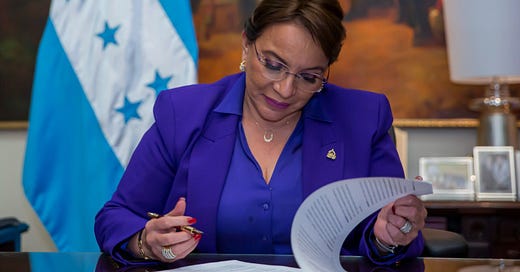In a Women’s Day gift that actually matters, Honduras' president ends ban on emergency contraceptive pills, and other stories
#WomenLead (Issue 136): Your weekly round-up on women in politics
Hello, and welcome to Issue 136!
We hope you’ve had a wonderful week. It was THE week after all - that time of the year when we get to read, hear, watch, and think of all things about women. Often in good ways, but also the time when the jokes write themselves (as they did for us, with our favourite being this one). 😂
In this week’s edition, we bring you…



